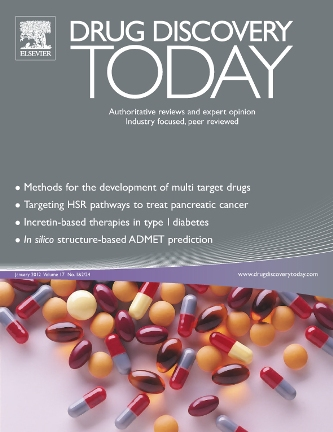利用 I 期研究验证同类首创药物的靶点。
IF 6.5
2区 医学
Q1 PHARMACOLOGY & PHARMACY
引用次数: 0
摘要
本综述讨论了作为药物开发的一种新趋势,I期(P1)试验中靶点验证的重要性与日俱增,尤其是在为首创药物建立概念验证(POC)方面。本文介绍了两种方法:P1-PIV 方法(直接评估关键临床研究的主要终点,以确认 P1 期的治疗效果)和新引入的 P1-FCTE 方法(评估治疗效果所需的功能变化,作为 P1 期的新型靶点验证里程碑)。通过提供一流药物的实际案例,我们比较了这些方法的优势、成本、障碍和适用的治疗领域。最后,我们讨论了这些新方法在促进 POC 成功、缩短开发时间并最终提高药物发现成功率方面的潜力。本文章由计算机程序翻译,如有差异,请以英文原文为准。
Utilization of phase I studies for target validation of first-in-class drugs
This review discusses the growing importance of target validation within phase I (P1) trials as a new trend in drug development, especially in establishing proof of concept (POC) for first-in-class drugs. The paper describes two approaches: the P1-PIV approach, which directly evaluates the primary endpoint for a pivotal clinical study to confirm therapeutic effects during P1, and the newly introduced P1-FCTE, which assesses functional changes necessary for therapeutic effect as a novel target validation milestone in P1. By providing practical examples of first-in-class drugs, we compare the benefits, costs, hurdles and applicable therapeutic areas of these approaches. Finally, we discuss the potential of these novel approaches to facilitate POC success, shorten development timelines and ultimately increase drug discovery success rates.
求助全文
通过发布文献求助,成功后即可免费获取论文全文。
去求助
来源期刊

Drug Discovery Today
医学-药学
CiteScore
14.80
自引率
2.70%
发文量
293
审稿时长
6 months
期刊介绍:
Drug Discovery Today delivers informed and highly current reviews for the discovery community. The magazine addresses not only the rapid scientific developments in drug discovery associated technologies but also the management, commercial and regulatory issues that increasingly play a part in how R&D is planned, structured and executed.
Features include comment by international experts, news and analysis of important developments, reviews of key scientific and strategic issues, overviews of recent progress in specific therapeutic areas and conference reports.
 求助内容:
求助内容: 应助结果提醒方式:
应助结果提醒方式:


